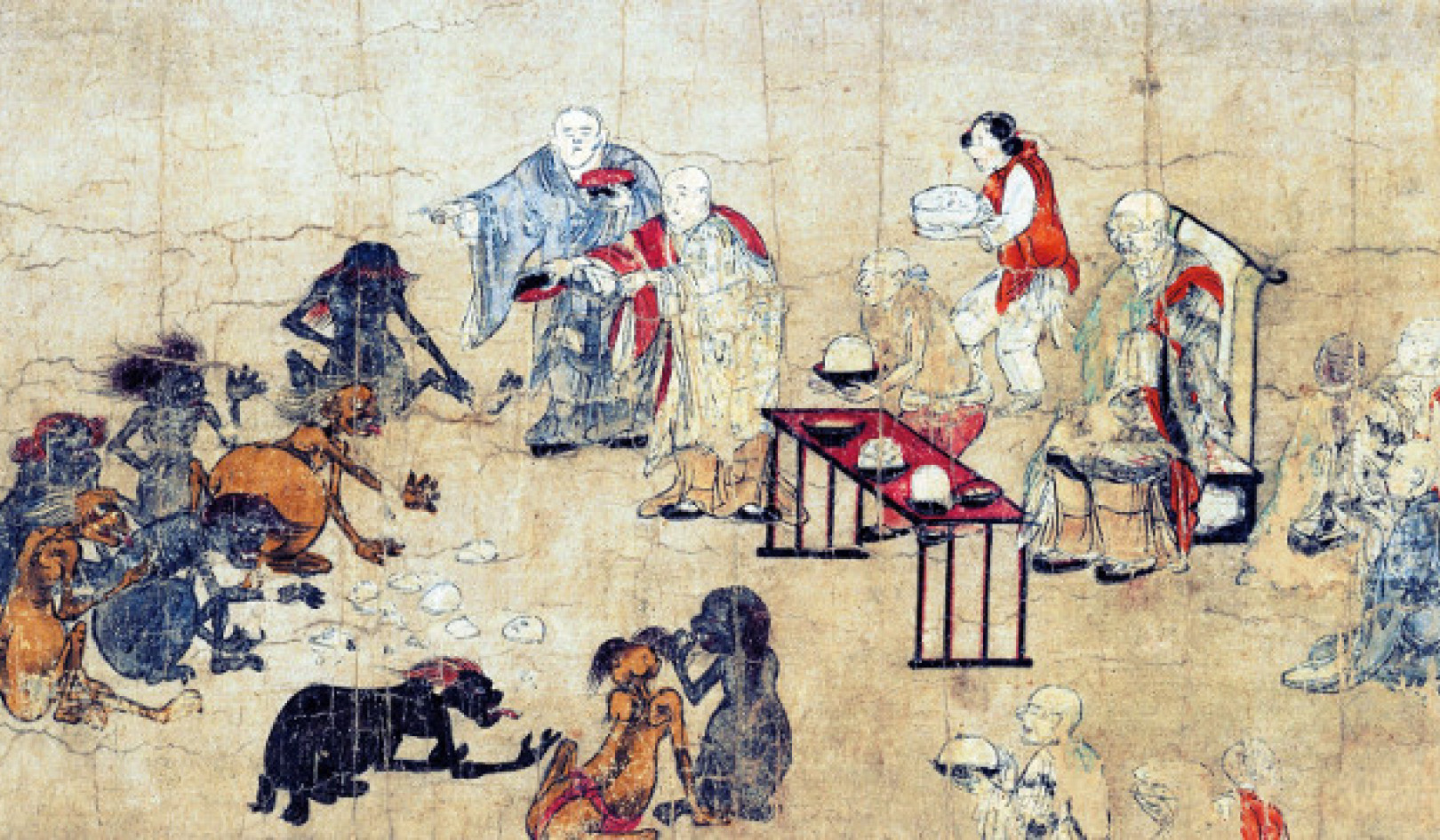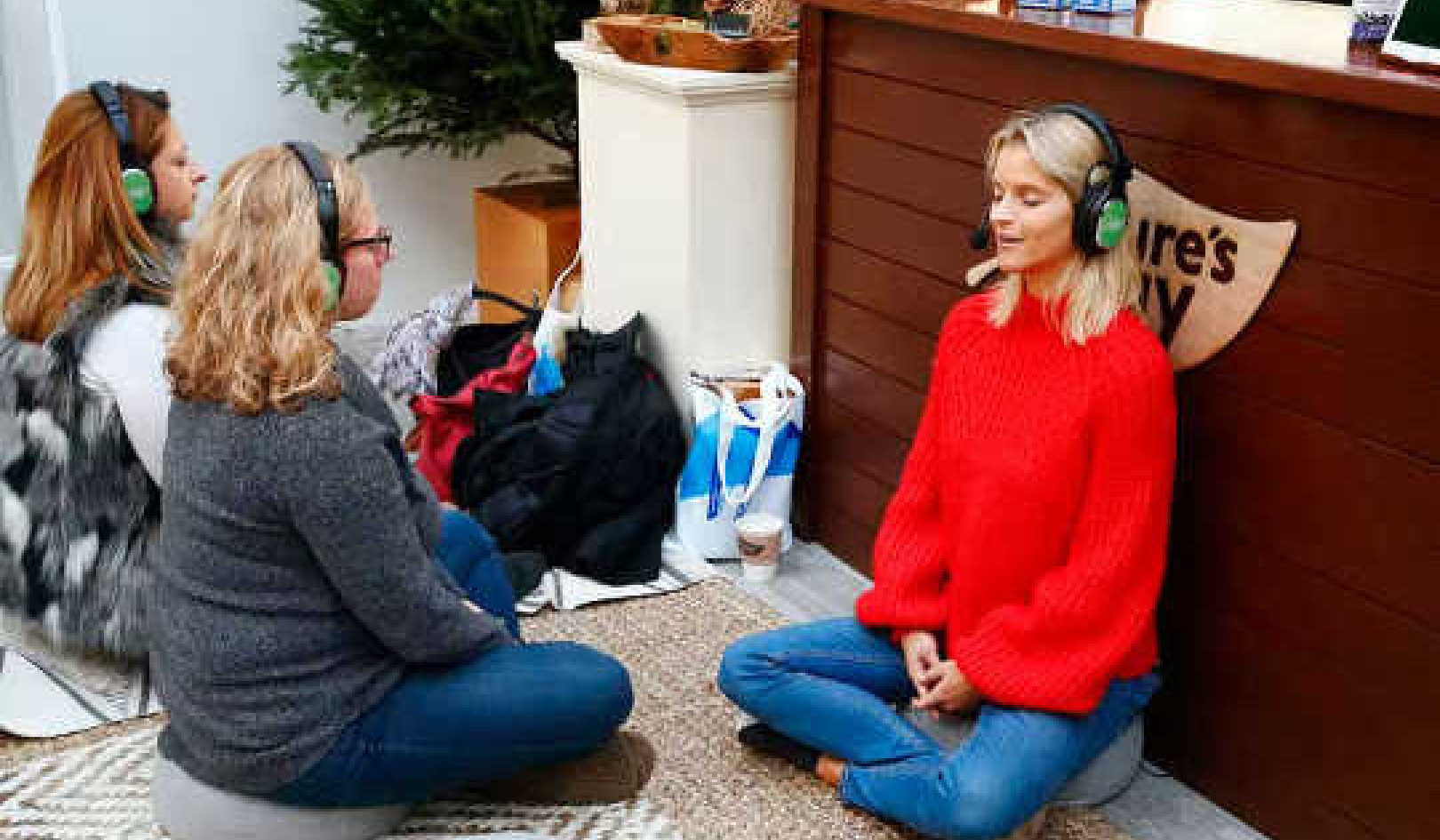
Image by mohamed Hassan
To be sincere with oneself means not to let his happiness depend on the approval of others. In the context of the quest for bliss, opinions simply do not matter. The only important thing is how to deepen that bliss, and how to spurn any action that obscures it. The judgments of most people are unreliable. Usually they are wrong, because influenced by delusion!
There is a story about a peasant who set out from home, accompanied by his young son, to sell a donkey at a fair. Because he hoped to get the best possible price for the beast, he and the boy walked. The donkey, meanwhile, trotted merrily along, happy for a change to be without any burden to carry.
They'd gone a little distance when they met another group coming the other way. One person in this group burst out laughing. "Just look at that stalwart animal," he cried, "trotting along while those two silly bumpkins trudge wearily at its side. Why don't they ride it?"
The peasant overheard this comment, and thought, "Well, I suppose it does look a bit strange!" He climbed up onto the donkey's back, accordingly, leaving his son to go on by foot.
Some distance further they passed another group, from which a voice rose in outraged protest. "What arrogance!" it cried. "See that grand fellow, seated proudly astride his donkey while his poor child goes limping along in the dust!"
The peasant overheard this comment also, and thought, "Well, I don't want people thinking me arrogant!" Down he got, therefore, and placed his child on the donkey's back instead.
They passed a third group. One person in it covered his mouth as if to show tact, though he was speaking quite loudly enough to be heard outside the group. "What a comedy!" he guffawed. "See that little fellow, in the glory of his youth, ensconced there like a king while his poor old dad hobbles along, trying his best to keep up! Imagine the paucity of discipline in that household!"
Well, the peasant didn't know the meaning of "paucity," but he got the general idea. "I don't want to be considered a nobody in my own home!" he thought. Hastily, therefore, he clambered up behind his son. And so they continued, only the donkey now going by foot -- or, more correctly, by hoof.
They passed a fourth group. Suddenly there came a stifled cry of horror, "Oh! what heartlessness! Such a heavy load on one poor creature's back! How can they be so unkind to their faithful servant -- yes, their friend! Ah, how painful, to see such ingratitude!"
At this point the travelers found themselves on a bridge that crossed over a river. The peasant, reflecting that by now he'd been criticized for every possible choice he made, dismounted the donkey in disgust, lifted his son down, and pushed the animal into the water below. And so the two of them returned home, empty-handed.
Do Not Seek Others' Approval
 The moral of this story is, of course, that one should not care excessively about others people's opinions. Where the quest is for bliss, especially, one must decide for himself what course he will follow, then stick to it unswervingly.
The moral of this story is, of course, that one should not care excessively about others people's opinions. Where the quest is for bliss, especially, one must decide for himself what course he will follow, then stick to it unswervingly.
Dear reader, I offer this counsel for you personally. Let others urge you to follow whatever course they like. Good advice, of course, should always be heeded. Above all, however, be guided by your own desire for freedom and inner bliss.
Reprinted with permission of the publisher,
Crystal Clarity Publishers. ©2003, 2004.
www.crystalclarity.com
Article Source
God Is For Everyone
by J. Donald Walters.
 The core of Yoganandas teachings, this book presents a concept of God and spiritual meaningthat will broadly appeal to everyone, from the most uncertain agnostic to the most fervent believer. Clearly and simply written, thoroughly nonsectarian and non-dogmatic in its approach, God Is for Everyone is the perfect introduction to the spiritual path. This book brings fresh new insightto ourselves and our most sacred practices.
The core of Yoganandas teachings, this book presents a concept of God and spiritual meaningthat will broadly appeal to everyone, from the most uncertain agnostic to the most fervent believer. Clearly and simply written, thoroughly nonsectarian and non-dogmatic in its approach, God Is for Everyone is the perfect introduction to the spiritual path. This book brings fresh new insightto ourselves and our most sacred practices.
Info/Order this book on Amazon. Also available as a Kindle edition..
More books by this author.
About the Author
 Swami Kriyananda (J. Donald Walters), who left his body in 2013, was a direct disciple of the great master, Paramhansa Yogananda since 1948. He has given thousands of lectures over the years in many countries, acquainting people with his Guru's teachings. In addition, he has written over eighty books and edited two books of Yogananda's which have become well known: The Rubaiyat of Omar Khayyam Explained and a compilation of sayings of the Master, The Essence of Self-Realization. In 1968 Walters founded an intentional community near Nevada City, California, based on the teachings of Paramhansa Yogananda. The community's name is Ananda. More about Swami Kriyananda, including photos and videos, is available at the official Swami Kriyananda website: www.SwamiKriyananda.org
Swami Kriyananda (J. Donald Walters), who left his body in 2013, was a direct disciple of the great master, Paramhansa Yogananda since 1948. He has given thousands of lectures over the years in many countries, acquainting people with his Guru's teachings. In addition, he has written over eighty books and edited two books of Yogananda's which have become well known: The Rubaiyat of Omar Khayyam Explained and a compilation of sayings of the Master, The Essence of Self-Realization. In 1968 Walters founded an intentional community near Nevada City, California, based on the teachings of Paramhansa Yogananda. The community's name is Ananda. More about Swami Kriyananda, including photos and videos, is available at the official Swami Kriyananda website: www.SwamiKriyananda.org




























